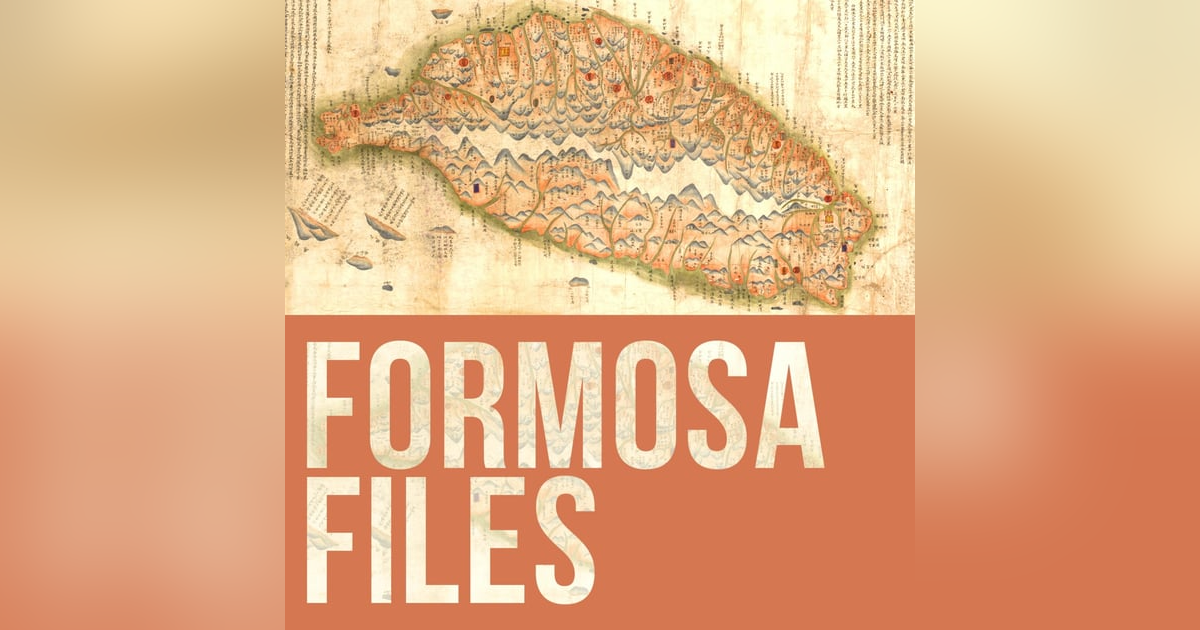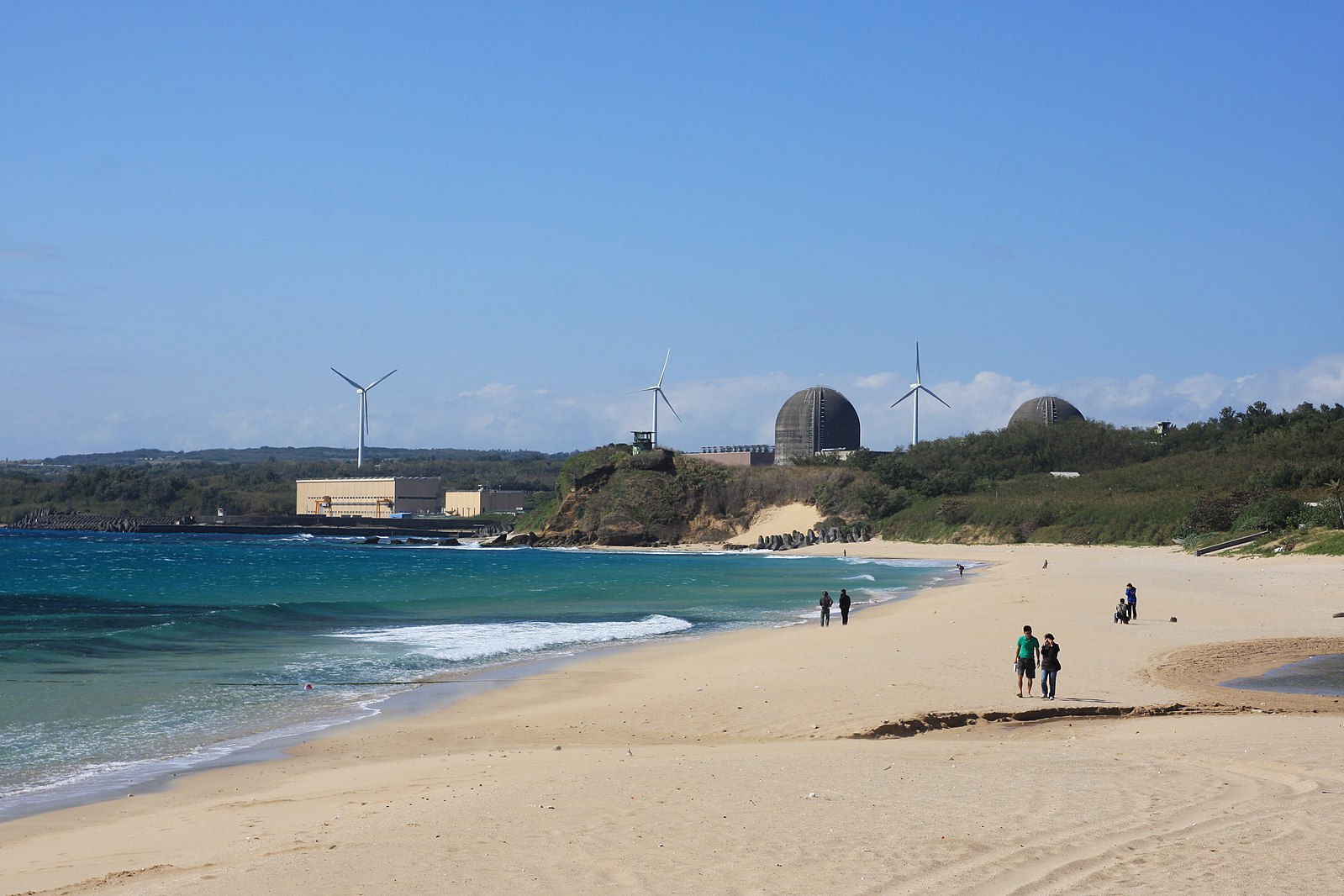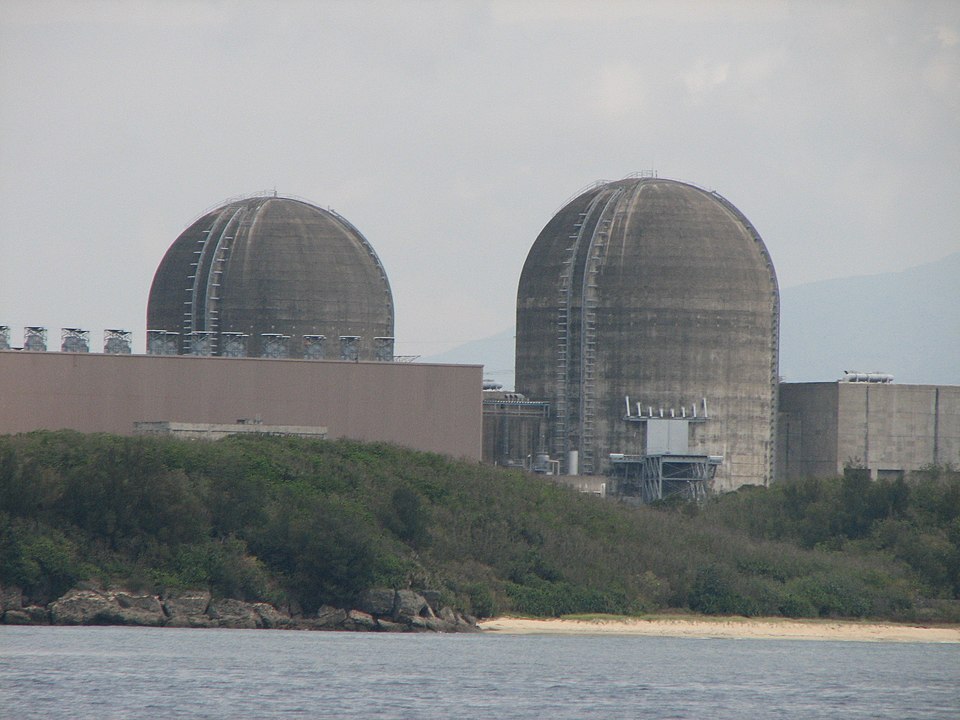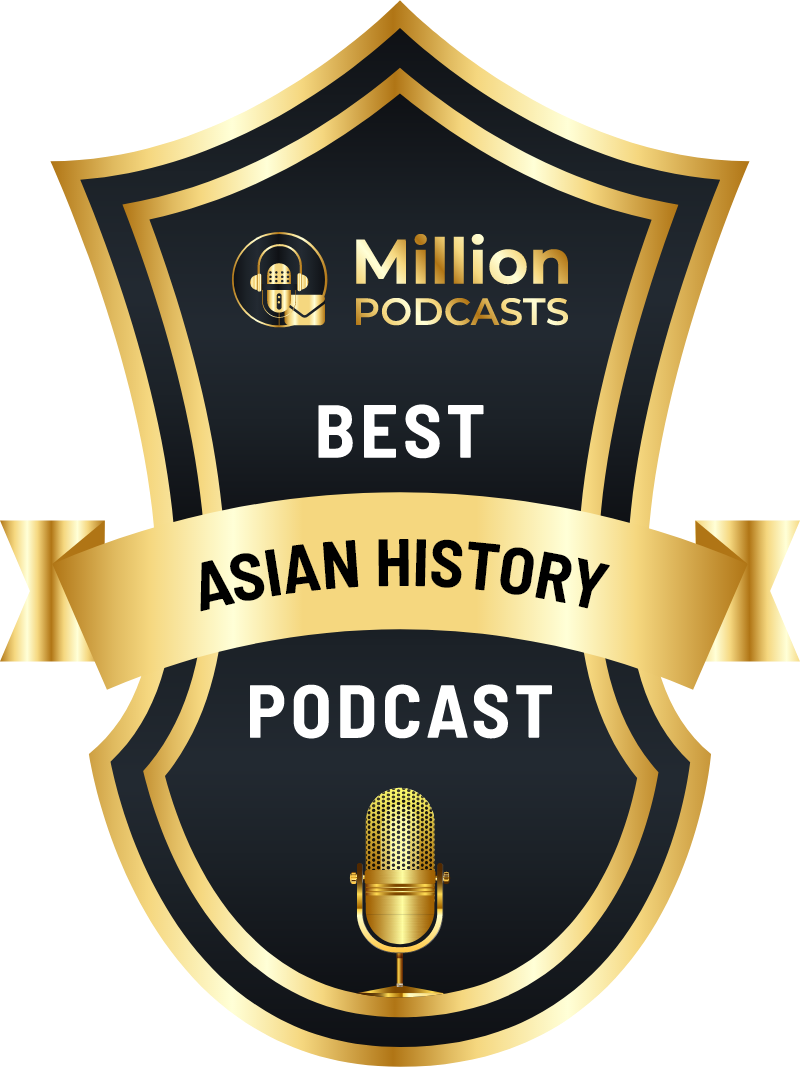Nuclear Power in Taiwan: The Story Behind Saturday’s Radioactive Referendum – S5-E25
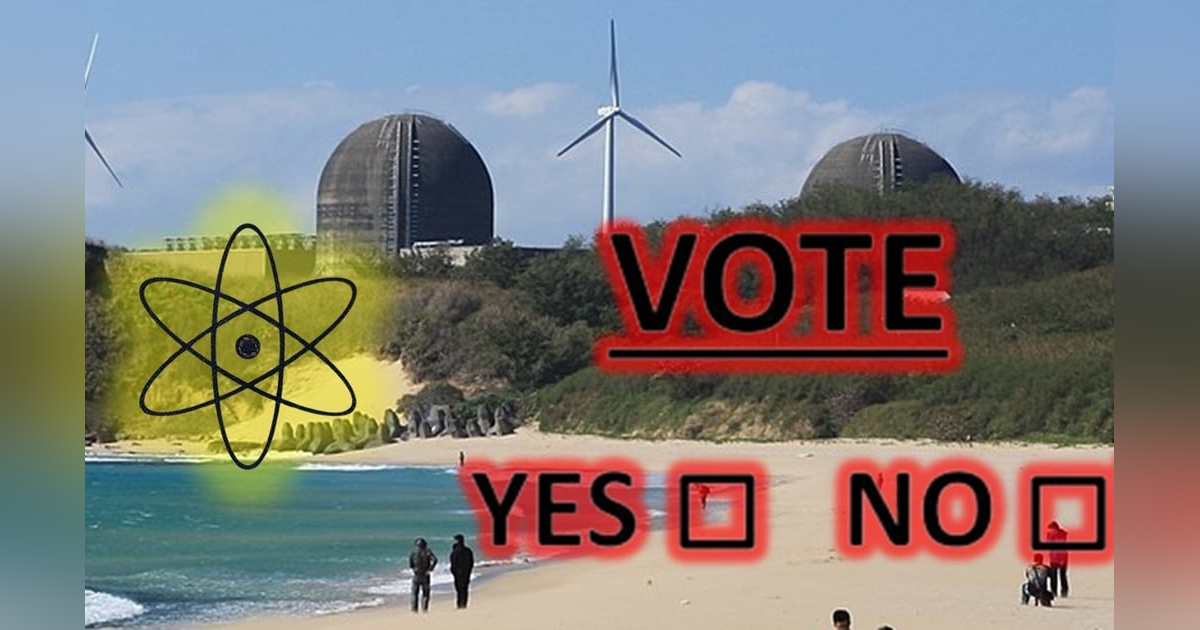
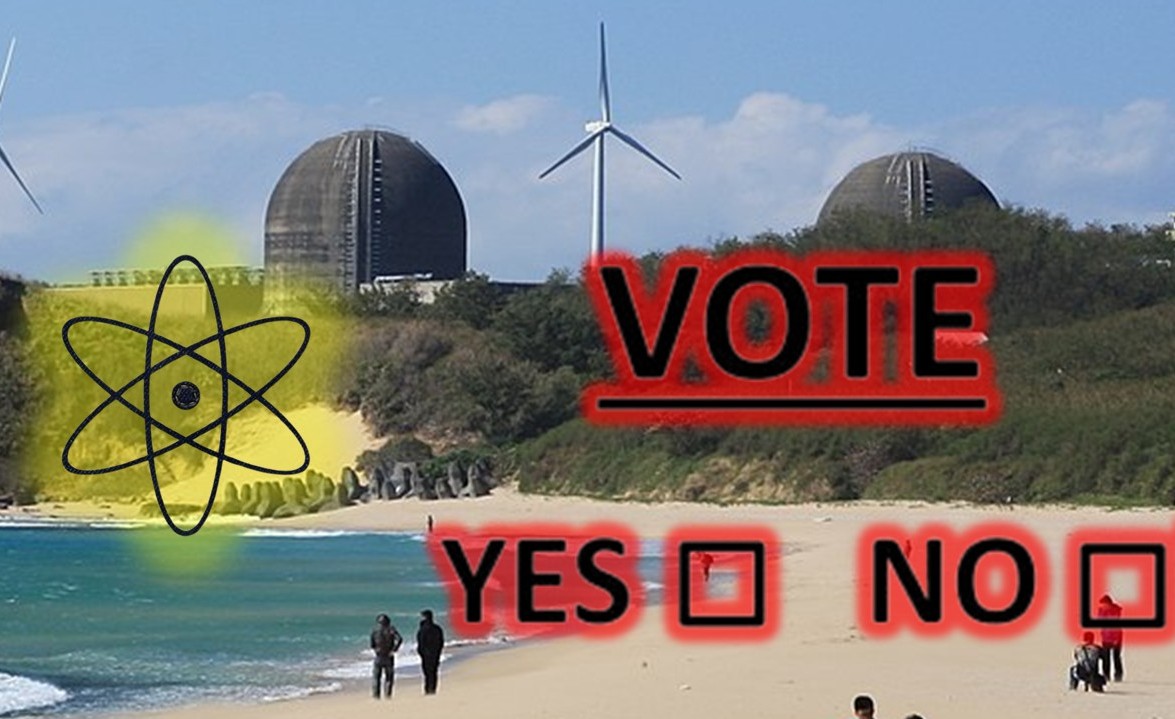
From Chiang Kai-shek’s nuclear ambitions to the fallout from Chernobyl and Fukushima, Taiwan’s nuclear story has always been controversial. The ROC once came within months of being nuclear-bomb ready, but today, fission is gone from even civilian atomic power generation. This Saturday, Aug. 23, 2025, voters face a radioactive referendum. The core question?
Whether to restart the recently decommissioned Ma’anshan Nuclear Power Plant 馬鞍山核能發電廠 in Kenting, Pingtung County. After years of splitting atoms over this hot topic, a critical mass is forming in a debate that may reveal just how divided the island remains on atomic energy. Join us as we explore the chain-reaction politics of Taiwan’s nuclear dilemma and the referendum which may trigger a U-turn on uranium.
Please follow us on social media, and leave a review or comment. Thanks, it really helps.
Cover: Wiki image of the Ma’anshan Nuclear Power Plant 馬鞍山核能發電廠 in Kenting, Pingtung County.
Aug. 23, 2025 VOTE INFO - The question in Saturday’s referendum reads: “Do you agree that the Ma-anshan Nuclear Power Plant should continue operation upon approval by the competent authority and confirmation that there are no safety concerns?” The number of people eligible to vote is 20,002,091, CEC data showed, translating to 5,000,523 votes as part of a majority for the referendum to succeed.
Below: The 馬鞍山核能發電廠 Pingtung plant, not exactly the most picturesque thing to have near a major beach resort.
NEWS - The question in Saturday’s referendum reads: “Do you agree that the Ma-anshan Nuclear Power Plant should continue operation upon approval by the competent authority and confirmation that there are no safety concerns?” The number of people eligible to vote is 20,002,091, CEC data showed, translating to 5,000,523 votes as part of a majority for the referendum to succeed.
Click links below for more info.
Referendums in Taiwan
Pingtung County magistrate urges opposition to nuclear referendum
Anti-Nuclear Groups Rally in Taipei Against Plan To Revive Ma-anshan Reactor
KMT urges yes vote on referendum
Academics urge ‘no’ vote in Saturday’s referendum
CEC outlines state of Ma-anshan vote
OTHER:
Taipower denies ever deceiving Lanyu islanders that it was a "canning factory"
Former president Tsai apologizes to Lanyu people
The CIA stops Taiwan's atomic bomb project
Taiwan's Plan to Dispose of Nuclear Waste in North Korea Stirs Protests, Raises Questions
FOLLOW us on social media, leave a REVIEW or comment. Thanks, it really helps.
Do us a favor and rate/review the show! It really helps. Do it on Apple Podcasts or here on our website.
Write us with questions or ideas at formosafiles@gmail.com
AND THE BIGGEST REQUEST: tell others about this free, not-for-profit resource about Taiwan.
Created with AI - mistakes are to be expected.
Welcome to Formosa Files. I'm Eryk Michael Smith with a slight cold.
And I'm John Ross. Without a cold. But with a nasal New Zealand Australian accent. All right. Well, today we're going to do something a little different. Different. I hope it's not going to get weird.
No, no, don't worry. I thought we'd look at a big story in the news and the history behind the story. OK, so we're straying deep into uncharted territory. We're exploring the 21st century. But actually, we're taking a rather pleasant trip. We're traveling down to the southern tip of Taiwan. Blue skies, white sands.
This is Taiwan's most popular beach resort, Kenting. And it was Taiwan's first National Park. Indeed, that was made a National Park in 1984. It's a lovely spot. You know, you've got beautiful scenery, the beaches, cliffs, uplifted hills, some of them coral hills, right? And usually you've got these clear skies. But there is one rather strange scene down there. You know what I'm talking about. Yes.
The Taiwan history podcast Formosa Files is made possible through the generous sponsorship of the Frank C Chen Foundation Formosa Files.
OK, so if you're standing on the white sands of Nanwan Beach, South Bay Beach beachgoers are playing in the turquoise waters. You got your women with parasols or umbrellas wading into the shallows, some of the moms screaming at their kids not to go too far into the water. The kids have got their inflatable wings on. But then, OK, all of this, right? All this beauty, water, Beachy stuff. Then you look over in the distance and there's two smooth Gray concrete domes, the two reactor buildings of the Manshan Nuclear Power Station. Yeah, Taiwan's third and last nuclear power plant. These two reactors were commissioned in 84 and 85 and shut down after their planned 40 years of use upon the expiration of each reactor's license. So that was in 2024 for one of them, and the second reactor earlier this year.
But Eryk, this closure, the end of Taiwan's nuclear power generation, it's not the news story we're talking about today. Right. This news story is newer than that. Fresh off the presses actually. Pre News. Pre News. Pre news yes, it hasn't actually happened yet. This coming Saturday, August 23rd, 2025, Taiwan goes to the polls for a referendum, The referendum question reads. Do you agree that the Ma Anshan Nuclear Power Plant should continue operation upon approval by the competent authority and confirmation that there are no safety concerns?
Eryk, you're the journalist, the news guy, and you've written about this story. I've not really followed it, but like I said earlier, hasn't that nuclear power plant, the the last of Taiwan's three nuclear power plants, already been closed down? Yes, I think the final day was May 17th, if I. But, you know, it's a process more than just like turning a switch. The entire decommissioning process will take years, and there's still the question of the radioactive waste. But the wording continue operation. Should that really be restart? Perhaps. Maybe. Yeah, it's complicated. I don't really know how you would go about doing that. It is over 40 years old. Right. So you've got to fix it right to make. It you would probably need to do some things to make it up to the referendum thing of saying safe and all of that, right?
But there's a problem, John. We can't talk too much about the referendum because it's illegal. So 10 days before a referendum or an election, you can't talk about it. So even though we've recorded this before, then we have to be very careful about what we say because that would be contravening Taiwanese law. So what I can tell you is that there's some question as to whether or not it will pass, because you need to have a certain number of voters, right? I can also tell you that people who tend to vote for the KMT are generally in support of reactivating or whatever you want to call it. People who vote for the TPP appear to be crazily in favor of it, and those who are on the green side of the political spectrum here appear to be less enthusiastic about it.
OK, throw our listeners a bone. TPP. What's that?
The Taiwan People's Party, they were the party of the former Taipei mayor Cohenza. He's currently sitting in jail on corruption charges. But it is the minor party in the parliament that kind of sits with the the blue side and helps them govern at present. OK, so we have to look here for what we say because we might sway Taiwan's public opinion without hugely popular for most. Of us, definitely, definitely. So there is something called the Neighborhood Harmony Fund. And what this is, is a certain amount of money that is given to the people who live in the Hung Chun area or the area around the plant. And you could say it's a form of appeasement or if you want to be nasty, you could call it a bribe. But it breaks down to not that much per person. I think it's only like 150 NT off your electric bill if you live there or something. Nothing crazy, but there's many more millions going for, let's see here, I'm looking at it perhaps as much as 150 million, something like that going to community programs, infrastructure, etcetera, etcetera. Which I think I can safely say those things are ripe places for corruption, often in many places, these sort of funds. OK. Yeah.
My concern with this referendum, with this question, is that it might be treated as sort of a general referendum on nuclear generation rather than specifically the merits of restarting this particular power plant. That's another issue. So I mentioned the people down there getting certain compensation, but there's also plenty of people down there who are like, hey, why only us? Why don't you restart the number two or the number one? Obviously they're older, so I guess if you're going to restart, it would be the one that would be the youngest. But you can imagine being someone in Ping Dong, southern Ping Dong and going, hey, northern Taiwan, restart your own plant. OK. So, I think what we need to do to give people who aren't totally aware of the situation here, there's been a slow growing anti nuclear movement in Taiwan, right?
And we should probably give a little history as to how that was created and how the power plants were built. Yes, it's a story of a secret plan to build nuclear weapons, you know. And yes, there's a later political aspect to the nuclear story because it became an important political 'cause as the opposition parties fought against one party, KMT rule. For Taiwan's nuclear story, we need to go back to the dawn of the nuclear age, August 1945, Hiroshima and Nagasaki. It wasn't just Zhang Kai Shek. Pretty much everybody said I want to get me one of those and countries start working on it. The Russians or the Soviets rather had a head start because America was filled with traitors that were passing them information. John Kasich didn't quite have that same assistance, but he wants nukes. He established a department for nuclear science. He seeks expertise and equipment. But of course, there's this troublesome little matter of I'm losing the Chinese Civil War, and I guess I got to flee to Taiwan.
Yeah, it'll be his buddy Mao Zedong, who gets to see that atomic ambition become real. China successfully tests a bomb in 1964, and this came as it's a nasty shock to Jiang Kai Shek and Taiwan, the president. He tried to get US support for a nationalist Chinese military strike against China's nuclear installations. The Roc Air Force would take out China's nuclear capabilities. Nice. The Americans were not especially keen on the idea. You know, they're like, sorry, playing with World War Three, we're kind of cool. We had to excitement 2 years ago with the Cuban Missile Crisis. Yeah, the RFC government, that is Taiwan's government, they want to join the nuclear club. But you know, developing nuclear weapons will need to be done in complete secrecy. The Americans don't want Taiwan doing it, and China has warned Taiwan that it will not allow it. Correct.
Didn't China say something like red line, red line, super red line, extra wide red line or whatever?
Yeah, so President Chiang Kai-shek ordered a detailed plan to be drawn up, of course a secret one. And for this, a brilliant German born Israeli chemist, Ernst David Bergman, was instrumental. Yes, this professor is called by some the father of the Israeli nuclear program. Bergman was invited to Taiwan A7 day secret visit in early 1965, the first of many subsequent trips. Bergman talked with Chiang Kai Shek and his son Chiang Jing Guo, who’d recently been made Minister of defence, and he'd been put in charge of the nuke program. And Bergman spoke with top military leaders, of course. So Taiwan's nuke program was to be a near copy of Israel's secret nuclear program, which to this day is unconfirmed. Yeah, right. But as we understand it, at that time Israel was very close to developing its first atomic weapon. OK, so Taiwan is going to get nuclear power facilities built strictly for peaceful purposes, generating power, but they're also going to be used for developing atomic weapons. So, it's a dual track civilian military nuclear program.
First, the civilian to hide the second. Bergman was not a nuclear physicist, he was a chemist. So he didn't give detailed technical assistance, but he did give this blueprint and the motivation and the advice on procurement, how to go about buying all the needed bits and pieces. Chiang Kai-shek put his son, as you noted, Jung Jing Guo, in charge of the secret program called the Shinzu Project. Now, not all the Roc leadership supported this nuclear project. The country's top science advisor, for example, was against it. Yeah, within the government support for it. Not universal. And OK, let's be fair, opponents of the nuclear program have some good points. Taiwan was poor, developing nuclear weapons could be a terrible cost, the country lacked scientific expertise and it carried a very genuine risk. I think of a pre emptive PRC strike.
Indeed. And, you know, this was a time when Taiwan was poor and pretty backward. Most people didn't have flush toilets. So yeah, maybe get the flush toilets before you get the nuclear power stations. And yeah, Taiwan's location is really not that ideal for nuclear power plants. It's densely populated. You've got tsunamis, earthquakes. But Bergman's recommendations were followed, and Taiwan built this two-part nuclear system. Yes. And the Taiwanese sport power reactors, nuclear power reactors from the US construction of these began in 71 and we see commissioning from the late 1970s through to the mid 1980s. These power plants go into use and 40 years later they're decommissioned.
The third one, Ma Anshan Nuclear Power Plant, is the subject of the upcoming referendum. When it came online, nuclear power provided about half of Taiwan's electricity. Yeah, that's an incredible amount. In the mid 1980s, we have the nuclear power plants pouring out electricity and we have the secret nuclear weapons program. It's going well. It would get to within months of having a bomb. But the United States had good intelligence. The CIA had a spy, an informer deep in the program. And in early 1988, they forced the government to close the program down. We're. Going to have to look into some stories about South Africa's involvement as well. They seem to have been attempting to aid as well. Well, it was two ways we were helping them as well. Proliferation. So at the time nuclear power plants are coming under Taiwanese public pressure, the political situation. So, we're talking in 1988.
Still, repressive environmentalism is a good weapon for those opposed to the government. You could get locked up for criticizing the government, definitely for promoting independence, but who could complain about parents asking for clean water, air and food for their families? Indeed, we did an episode a few seasons back called The Lugang Rebellion about how in the mid 1980's the sleepy town of Lugang on the West Coast of central Taiwan was the site of a battle between the environment and development. This American petrochemical giant, DuPont was given permission to build a plant near Luga and the local people fought against it. And over the next 15 months it was a campaign which would really, you know, shake the country and it would have far reaching consequences. And there was a big incident which had happened recently overseas. The Bhopal, I think it's pronounced right. Bhopal disaster A chemical accident, December 1984 at an American owned pesticide plant in Bhopal, central India. Yeah, still considered the world's biggest ever, the worst ever industrial disaster. I think over 500,000 people around the plant were exposed to a highly toxic gas.
More than 2000 died immediately and many more in the following months. Even more relevant to our story, Chernobyl, the worst nuclear accident in history that occurred in April of 1986. So public opinion is turning and it's going anti nuke and the newly formed DPP. So the Democratic Progressive Party, the first official opposition party, they're riding this anti nuke sentiment. Yes. So the opposition to DuPont, they were successful. The protesters forced them away. The plant was not built in Lu Gang. So yeah, Taiwan's environmental awareness was growing. And this DuPont dispute showed the opposition politicians, especially, you know, the DPP, that environmental issues were a winning way forward for them, would become a big part of their platform, especially the anti nuclear power position. Yeah, the last government promised to make Taiwan nuke free by 2025, so I guess that was a promise they delivered on. Back in the 80s though, the 90s, there were protests against plans for 1/4 reactor or a plant in Gong Liao on Taiwan's northeast coast. That was a huge part of President Chen Shui Bien's first term, as I recall.
Yeah. So construction there began in 1999, I think, but it was halted the next year and then it started again. I I can't remember, it was back and forth for years. Yeah, mine Joe restarted it, then it was Yeah, just, and then eventually mothballed. What a waste of money. Depending on your view of course, I would have preferred personally that you close down the old one, maybe open a new one. Replace it with the new one. Maybe a better idea. And of course we can't forget that a lot of this is that scandal involving waste over on Orchid Island. I did some digging into this and it seems that it started in 1978 8 when the Taiwanese government said they were going to build a cannery, a fish cannery on the island. Haha, OK. But instead, it eventually became a spot for storing low level waste, nuclear waste.
And the Tao people of the island, they're not happy about this. When they finally figure it out. And it slowly becomes part of the conversation in Taiwan and people are like, that's not cool. You send it over to. It was a public relations disaster. It's not a good look, is it? You have this small island with this indigenous people previously called the Yami, now they prefer to be called the Tau. And you're dumping nuclear waste. You're lying about it and putting nuclear waste on their small island. Yeah, eventually it's acknowledged and former President Tanguan actually went over there and apologized as I recall. But there's still like, I think 100,000 barrels of waste stuck there, and we don't know what to do with it. There was an idea in 1996 that is wild. And the idea was, well, let's pay North Korea. To take it. Sorry, did you say North Korea? North Korea, yeah. So I'm looking at an issue from 1997 of Physics today and it has a great rundown of this. They're saying, OK, 100,000 barrels are on Langi and we've been looking for alternative places but we just can't find it. This article says the offer came from North Korea for a cash payment. It will permanently store the waste at existing facilities there. So then they send a team up there. They find this converted coal mine 110 kilometers South of Pyongyang, 95 kilometers from the Demilitarized Zone.
And the Taiwanese check the, you know, geology, I don't know, hydrology, whatever other words you're looking for. And they'd say, yeah, this is a good spot. So then on the 11th of January 1987, they announced that they are going to send 60,000 barrels, and they have an option of going up to 200,000. Neither side has confirmed how much they were going to pay, but the reported fee was 1150 U.S. dollars per barrel. My goodness. And what a large number of barrels. Yeah. So the problem here is Taiwan is not officially to some people a country, right. So you got to get permission for moving this stuff around from the IAEA. North Korea also is not really a country. So these two are trying to figure out how they can get the permits for this and it's not going well. And within a short time, environmentalist Greenpeace, a whole bunch of these people are up in arms over it. You need it up a spot that the groundwater wouldn't be contaminated for 1000 years. You need this. You need other people are going to the Yami and asking them, do you really want to ship your suffering to the North Korean people? And it becomes just a hot potato.
There are even S Koreans starting these boating drills, getting ready to block the Taiwan ships from coming into the area. And eventually it just becomes too, John, I know you'll love this. Just too radioactive and nothing happens, those barrels. Are what a wild story. Incredible. Still sitting there, it gets even weirder. So in I'm looking here at the type of times 2013 North Korea has filed A transnational lawsuit against Taiwan Power accusing the state owned utility of failing to honor a contract to deliver nuclear waste for disposal in the communist state. So they sued saying that we did this in 96 and you were supposed to give us 8, almost 9 million U.S. dollars, and we extended the contract by five years so you could figure out your issues. And it goes on and on.
And at the very end, Taiwan says we didn't give them a cent because it never really went into action. And it's unlikely that North Korea is going to win this lawsuit anytime soon, I would argue. Wow, quite a ride. Yeah. So back to that plant in Guang Liao, 99 began, but then, as we said, halted and then started, halted, halted. But the timing of those years, that decade, was not good specifically for one reason. And why is that? Fukushima, AH. OK. 2011 You see this meltdown live on television, which does not help the cause of those in favor of nuke power. Or tidal wave power. OK, let's get it that way. It's ironic in a way that we're recording this today on a typhoon holiday.
I don't know if that's the term to use, but we have the day off here in the South. I was talking to a friend the other day, an energy person. He's saying that typhoons are actually super useful for Taiwan's energy generation because at present, roughly 85, maybe you could say percent is imported, so coal or LPG. But a typhoon? It gives us tons of water for hydropower. We don't have much hydropower, do we? Some I guess is better than none. Okay. And a whole bunch of people in the South turn off their air conditioners because they don't need them at the time, which is also useful. Okay. So this upcoming referendum is not the first one we've had. We've had several. I don't really follow politics that much. I do remember some referendums about getting a casino on Penghu, the islands. The island of failed twice, right? And the second time, and there was a larger no vote than the first time around. But if we're going to stick to this topic, my memory is that in 2021 there was one that was a no vote, then there was another one a little while a few years later, and that one didn't pass because of not having the the right amount of. OK, so there are referendums which are done for local issues.
The one that's coming up this Saturday is a national referendum, right? Those ones, I believe also were national ones. Like the question was should we restart Gong Liao, for example. So it's been put to the people, which I question. It's an extremely important thing, energy security. I think we have several months of coal and we would not be in a good position if China decided to put a bunch of ships around us. So some would argue that having these atomic plants are useful and necessary. I'm not going to say an opinion either way, but I wonder if it's something you would put to the public. Isn't this supposed to be decided by people who know better than you and I or the average Joe or “Joeess”? Yeah, The merits of continuing that power plant down in Kenting, very technical. How much is it going to cost? What's the condition of the equipment? You just can't. You can't seriously make an informed decision on that, can you? So the DPP government has fulfilled its commitment and the voters did vote them in knowing that, but now the parliament is run by the other side and they are putting this to the people again. So you know, democracy, it's one way of looking at it humbly. I'm just thinking about how much it was reported that Taiwan was going to pay per barrel to store the. Waste in North. Korea. We have a couple of plots of unused farmland up here. So you're you're offering your Jai farm as a site to alleviate the towel? Absolutely yes you can do. The Math 200,000 * 1150 U.S. dollars. Okay, doesn't Orchid Island get hit by typhoons every year? Right now, really badly, they don't have power.
As we record this. Yes, correct. Several hundred homes do not have power. It was a crappy thing to do to them, it really. Was it was, Yeah, yeah. I remember seeing video news of some of the Islanders dressed up in their very distinctive traditional costumes up in Taipei, you know, protesting. Understandable. Yep, I've. Always joked that maybe it should be over on one of those islands in Jinmen. Like, right, The one that's closest to the border, we're with China. Evil, but yes, that would work, wouldn't it? Some Little Rock that we're just gonna rock this year. Kilometers. Off the Chinese coast, if they if they hit it, they get taken out by radiation. The things I probably shouldn't say out loud in any way. No, no. We'll edit that out. Can we talk about their requirements for the the percentage of the turn out or? It would be safer if people who are interested just go look up on Wikipedia, but people will recall that not very long ago we had a recall vote and none of those were successful, mostly because of not making the threshold right of required votes for most elections.
As I understand it, you have to go back to your almost, it's the Joseph and Mary back to the town or village where you were born and there do your referendum. So it's a bit of a mop on for people who are, you know, registered in Ping Dong but working in Taipei. Yes, we get an influx of returning residents when there's a vote like this. They come back to vote, which is quite a commitment, isn't it?
It is, yeah. And it's not like your employer necessarily gives you some stipend or the government and pays for your transport or something. You, you gotta do it. And the free lunch box or the cap pen tissue paper doesn't really cover the expense of coming back. A lunch box might actually be bribery. That's too much. It's over there. Was it 50 NT threshold or something? 30 at this point, I think. Oh, so bad, yeah. All right, well, you can go back and check out our other episodes about the Lugong Rebellion. We also have nukes versus the CIA. That's right. And we've got an episode on Typhoons. We have a treasure of riches, quite a quite a lot of episodes now.
How many have we got? We have somewhere around 275, a total of 282, but some of them are repeats so a lot. OK, it's enough to train AI to make more Formosa files. Emphasize that we can take a break. Yeah, well, thanks for listening. I'm Eryk Michael Smith. I'm John Ross. Bye.
